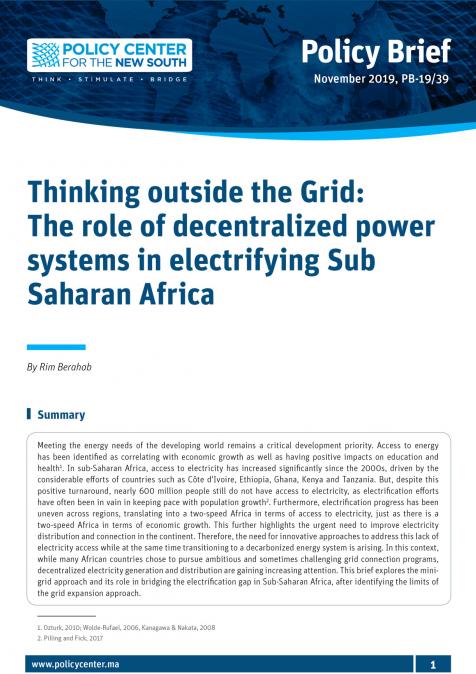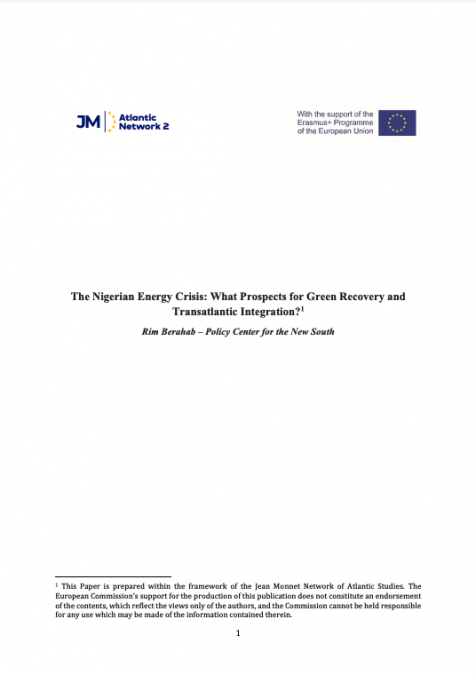Publications /
Policy Brief
Meeting the energy needs of the developing world remains a critical development priority. Access to energy has been identified as correlating with economic growth as well as having positive impacts on education and health1. In sub-Saharan Africa, access to electricity has increased significantly since the 2000s, driven by the considerable efforts of countries such as Côte d'Ivoire, Ethiopia, Ghana, Kenya and Tanzania.
But, despite this positive turnaround, nearly 600 million people still do not have access to electricity, as electrification efforts have often been in vain in keeping pace with population growth2. Furthermore, electrification progress has been uneven across regions, translating into a two-speed Africa in terms of access to electricity, just as there is a two-speed Africa in terms of economic growth. This further highlights the urgent need to improve electricity distribution and connection in the continent. Therefore, the need for innovative approaches to address this lack of electricity access while at the same time transitioning to a decarbonized energy system is arising. In this context, while many African countries chose to pursue ambitious and sometimes challenging grid connection programs, decentralized electricity generation and distribution are gaining increasing attention. This brief explores the minigrid approach and its role in bridging the electrification gap in Sub-Saharan Africa, after identifying the limits of the grid expansion approach.
Historically, centralized grid expansion has been the primary pathway to electrification both at the worldwide level and in Sub-Saharan Africa. It was considered a development prerequisite, with the supply of electricity and infrastructure setting the stage for economic growth. On-grid electricity provided to households is defined as electricity delivered via a connection to a local grid linked to a transmission network. Typically, grids are supplied by large centralized power plants, using either coal, natural gas or hydroelectricity.










